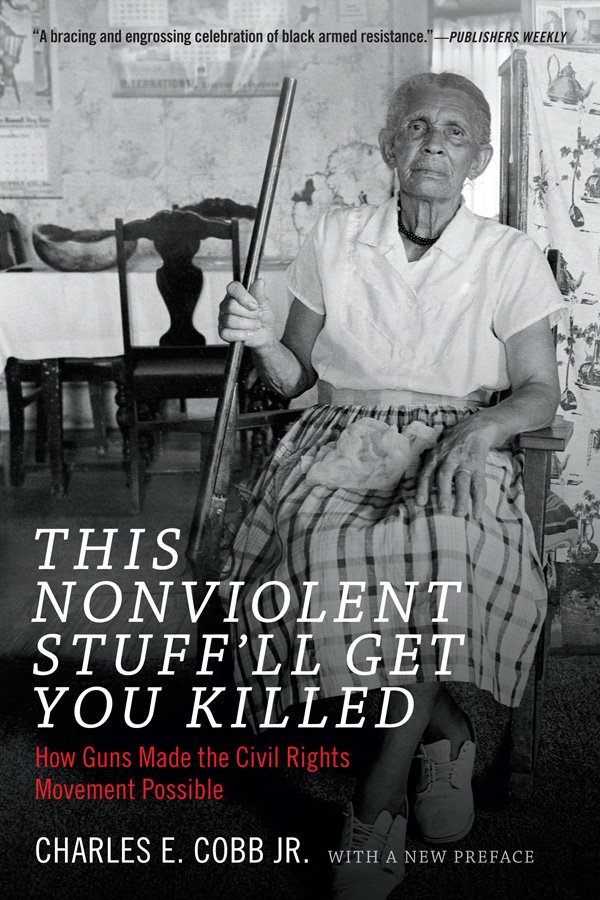This Non-Violent Stuff’ll Get You Killed / Charles E. Cobb Jr / 2014
Pratik Raghu recommended this book to me years ago, which I only just read in India. It's a story of Black resistance to white supremacy told through African American relationships to guns. Far from romanticizing violent resistance, Cobb opens by laughing off the idea of Blacks leading an armed revolution of the US as a fantasy and criticizing Fanon’s view of guns as inherent to liberation. Instead, Cobb weaves the history of Black veterans’ participation in the American Revolutionary and Civil War to its necessary role in the Black Liberation movements of the 60s and 70s. Public education teaches Black history as slavery, civil war, Jim Crow, then the civil rights movement, as if Black people didn't learn to fight and defend themselves effectively until the 50s or so. In doing so, it erases not just Black participation in early rebellions of the American Revolutionary period, but also the ideals and convictions behind those weapons, which were of course wildly different than those of the Founding Fathers. It erases the violent repression and constant extrajudicial murder of Black people, convict leasing of the Reconstruction period and how Blacks managed to protect themselves, sometimes managing to scare off vigilantes with shots in the air, frequently choosing to bow down, however reluctantly and with whatever much subversive resistance, to overwhelming reactionary violence by white mobs who would use any reason not just to lynch, but terrorize and burn down Black communities. It erases the Deacons for Defense and Justice and other unnamed armed groups that protected nonviolent organizers in the civil rights era, shooting bullets into the air to scare off Klan members and other terrorists, as well as providing armed security for nonviolent demonstrators, sometimes against the wishes of said demonstrators, but more often, providing safe homes and teaching them how to be safe under the tyranny of the South. Cobb makes clear the nonviolent civil rights movement would've been impossible without guns. There's a lot more I can say, but mostly I want to express gratitude for this book as it made so much of history make more sense to me. It's hard to get an overarching history that shares how the civil rights movement worked on the grassroots level. One of the weirdest things about the 50s and 60s movement is that its taught as if it was top down (led by King and a few others) rather than grassroots, when the grassroots elements of the movement are the ones that accomplished the most in terms of chipping away at the South's apartheid state. Grassroots activists had profound disagreements with King and the presence and need of guns sometimes embarrassed nonviolent, who sometimes attempted to portray the movement in the squeakiest cleanest light to continue to win the media narrative. I learned so much from this book that i really wish i would've known learned between 14 to 16. 5/5 no doubt.
